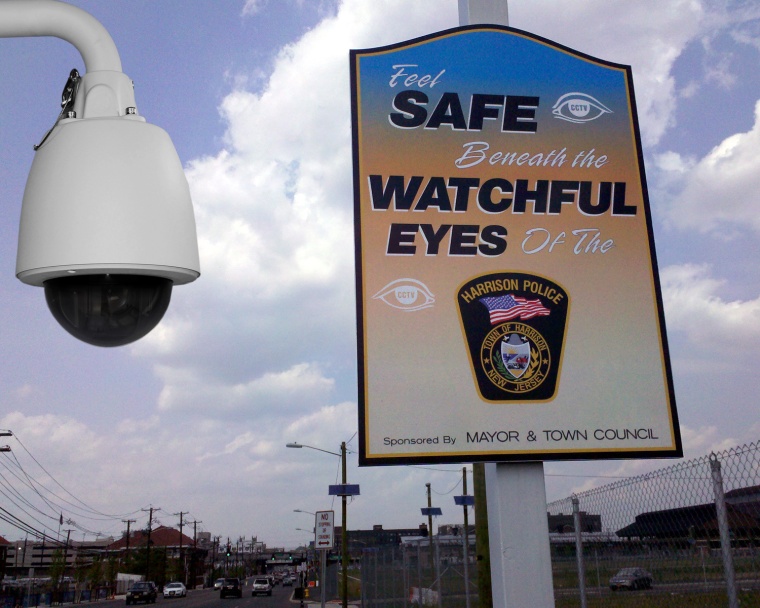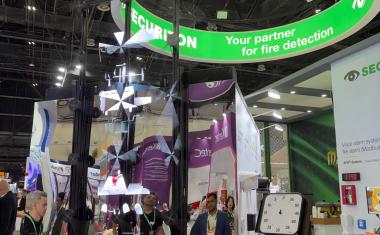IndigoVision’s IP Video Boosts Police Performance
Town of Harrison Police Department in New Jersey has vastly improved their performance by deploying a city-wide wireless surveillance system based on IndigoVision's IP video techno...

Town of Harrison Police Department in New Jersey has vastly improved their performance by deploying a city-wide wireless surveillance system based on IndigoVision's IP video technology. Harnessing the power of IP Video has meant the department's incident response has improved and the percentage of investigations resulting in arrests and prosecutions has significantly increased.
Under the leadership of Police Chief Derek Kearns, Harrison PD has employed the COMPSTAT process to improve their policing operation. COMPSTAT is a management approach that involves collecting, mapping and analysing crime data and other police performance measures on a regular basis. High-quality forensic surveillance video is a key element of this strategy.
Prior to this initiative, Harrison had a handful of poor quality cameras monitoring their vibrant and every growing urban centre, which did not include recording. In 2008 they looked into IP Video, following the recommendation of the Hudson County's Prosecutors' Office who had used an IndigoVision solution to transform their surveillance and interview process. With the help of IndigoVision's Authorised Partner, Pinnacle Wireless, they tested the system by connecting an existing analogue dome camera to an IndigoVision video transmitter module and streaming the video onto their existing network. The rest as they say is history.
"We were so impressed with the video quality and the capabilities that IP Video offered, we kicked off a plan to deploy a city-wide system," explains Sergeant Ed Markowski, Harrison Police Department. "We have now installed cameras in our interrogation room, the local library and around the city centre. The next 15 cameras will be fitted in the landmark Red Bull Arena. Then we can really dive into the good stuff - we have barely scratched the surface with the system capabilities and are anxious to learn more."
Officers use ‘Control Center', IndigoVision's Video Management Software, to monitor live video and analyse recordings, which are stored on IndigoVision's standalone Network Video Recorders (NVRs). The server-less distributed architecture of the system enables ‘Control Center' PC workstations to be located at any point on the network, without the need to stream video through a central server. Harrison PD use ‘Control Center' in dispatch as well as on the desks of eight other remote officers and detectives, including the Chief of Police.
"We can now validate and authenticate video evidence from robberies, crimes and other incidents, which we could not do before," added Markowski. "The new surveillance system has given us additional ‘eyes' on the street, expanding officers' reach and helping us to improve our incident response."
Another reason that Harrison PD chose IndigoVision was that it can record hi-fidelity audio in complete synchronisation with the video and with a guarantee of no dropped video frames. Evidential video clips that are recorded in their interrogation room and then used in court cannot be open to interpretation. Having ‘lip-sync' delays between the video and audio or dropped frames could introduce uncertainty during playback.
Pinnacle installed a combination of point-to-point and point-to-multipoint wireless systems to provide city-wide network coverage for the system. The key to successfully streaming high-quality video across wireless networks is to minimise the overall bandwidth usage. IndigoVision achieves this with class-leading compression technology and a unique feature called Activity Controlled Framerate. ACF controls the framerate of the video stream based on the amount of motion in the scene. When there is no activity, video is streamed at minimal bandwidth; the instant any motion is detected, video is simultaneously transmitted at maximum configured framerate. This significantly reduces the bandwidth requirement for cameras monitoring generally static scenes or during quiet periods, such as at night. These factors also help to significantly reduce the amount of video storage required.












